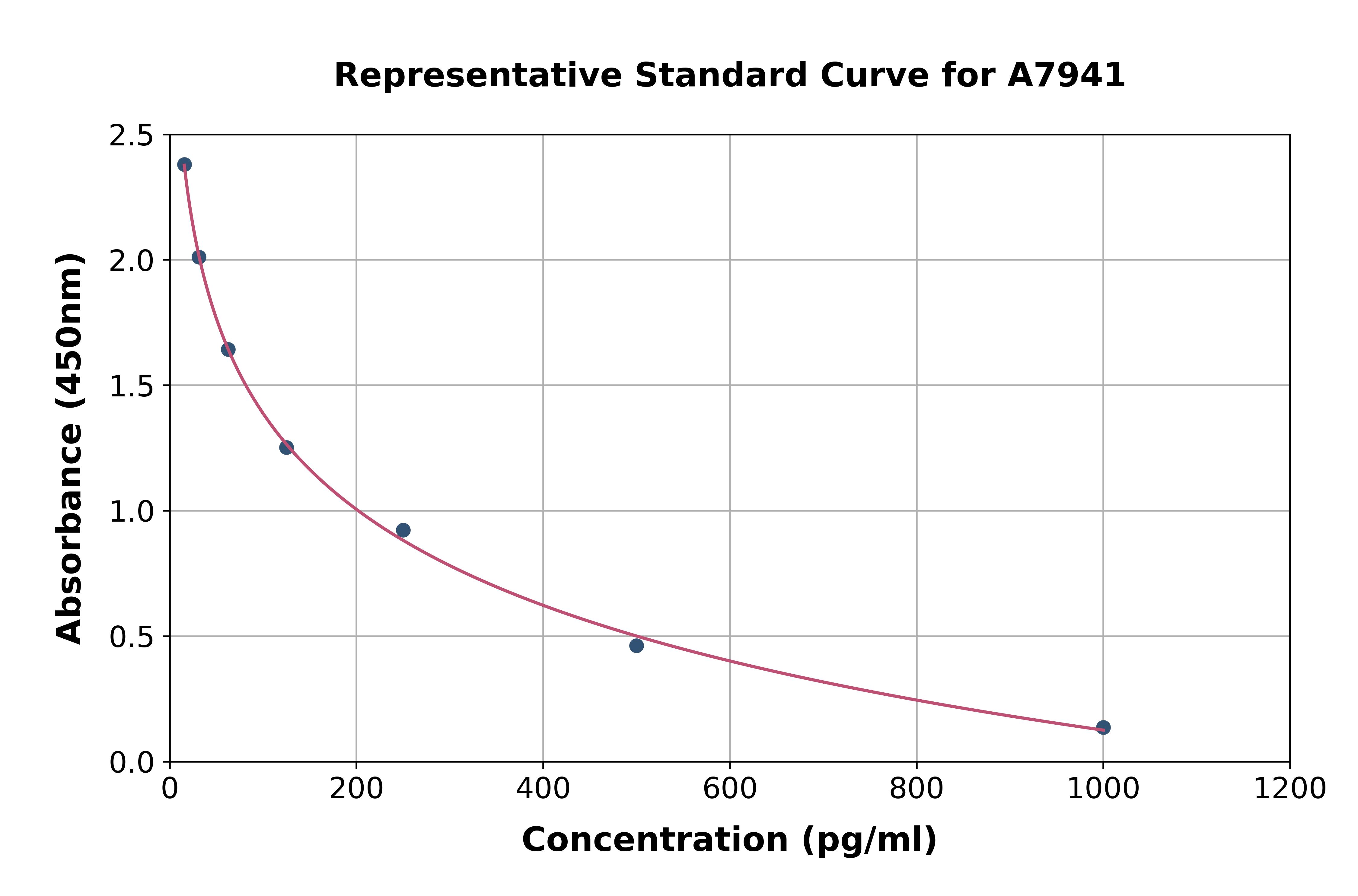
The figure shows a typical standard curve for the NT pro CNP ELISA. The immunoassay is calibrated against recombinant NT-proCNP peptide.
NT-proCNP ELISA
BI-20812
Assay Sample Typeserum, EDTA plasma, citrate plasma, heparın plasma, urine, cell culture supernatant, human and non-human samples
Product group Assays
Overview
- SupplierBiomedica
- Product NameNT-proCNP ELISA
- Delivery Days Customer7
- ApplicationsELISA
- Applications SupplierELISA
- Assay Detection Range4-128 pmol/l
- Assay Precisionintra-assay: 6%, inter-assay: 7%
- Assay Sample Typeserum, EDTA plasma, citrate plasma, heparın plasma, urine, cell culture supernatant, human and non-human samples
- Assay Sensitivity0.7 pmol/l
- Assay Test PrincipleSandwich ELISA
- Assay Time4h
- CertificationResearch Use Only
- Scientific DescriptionProduct Characteristics: The Biomedica NT-proCNP Sandwich ELISA kit is a test that is intended for the quantitative measurement of N-terminal C-type natriuretic peptide levels in human serum and plasma samples. The Biomedica NT-proCNP ELISA is a highly recognized test with >45 specific publications to date. Target Information: C-type natriuretic peptide (CNP) is a paracrine growth factor widely expressed in tissues, including the vascular endothelium, where it is considered to provide vasoprotective functions. In endothelial cells and macrophages it is secreted in response to several stimuli, including inflammatory mediators. CNP is rapidly degraded in tissues and negligible quantities enter the circulation. However, the N-terminal portion of the pro-hormone is not degraded at source and circulates in significantly higher concentrations than CNP. Therefore NT-proCNP is a valuable biomarker to determine CNP synthesis in tissues. CNP plays a critical role in linear growth. It is produced in the growth plate and signals through a paracrine mechanism. Recent studies have shown that the plasma concentrations of NT-proCNP correlate with linear growth velocity in all phases of skeletal growth and increase during rhGH therapy. Furthermore, serum NT-proCNP levels increased after initiation of GH treatment in patients with achondroplasia/ hypochondroplasia. Women with pregnancy complications, such as diminished fetal growth and pre-eclampsia show significantly increased NT-proCNP levels early in gestation. NT-proCNP concentration at hospital admission has sufficient sensitivity and specificity to differentiate naturally occurring sepsis from non-septic systemic inflammatory response syndrome (SIRS). Recently, Prickett and colleages demonstrated in a cohort of over 2000 individuals, that in contrast to the close association of NT-proBNP with cardiac function, and predictive value for outcome after myocardial infarction, plasma NT-proCNP is highly correlated with renal function and is an independent predictor of mortality and cardiac readmission in individuals with unstable angina.
- Storage Instruction2-8°C
- UNSPSC41116133



